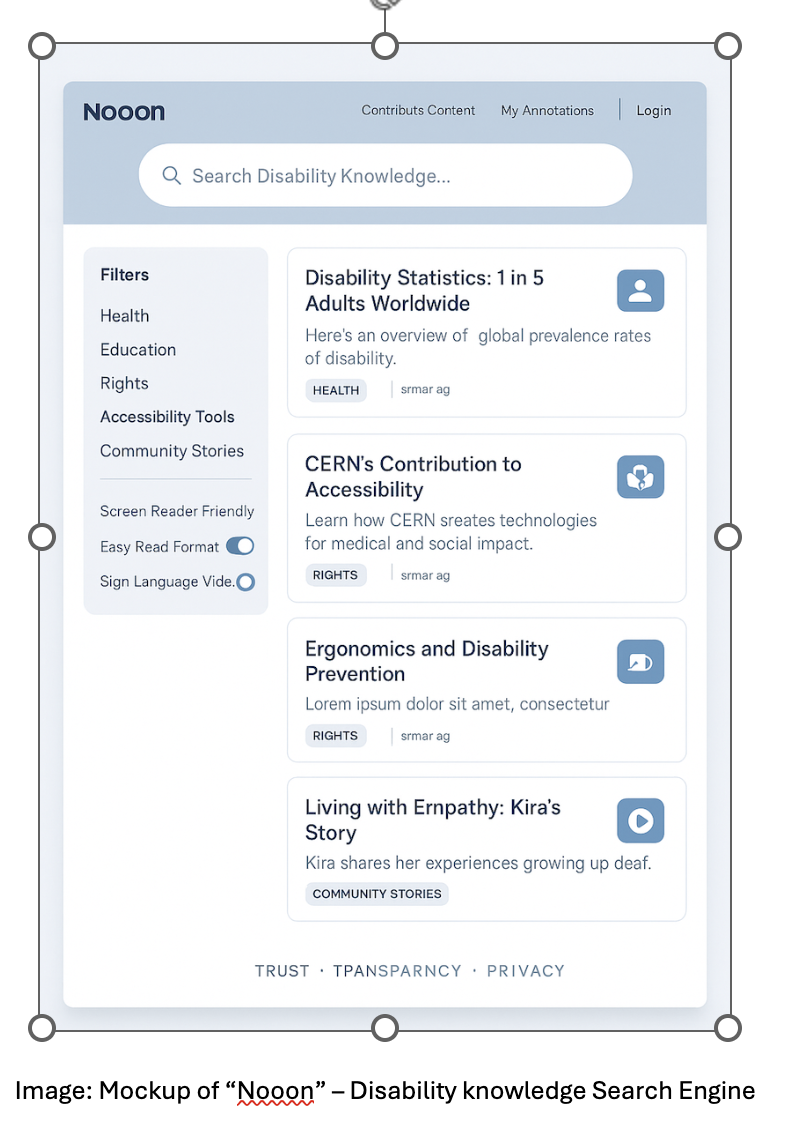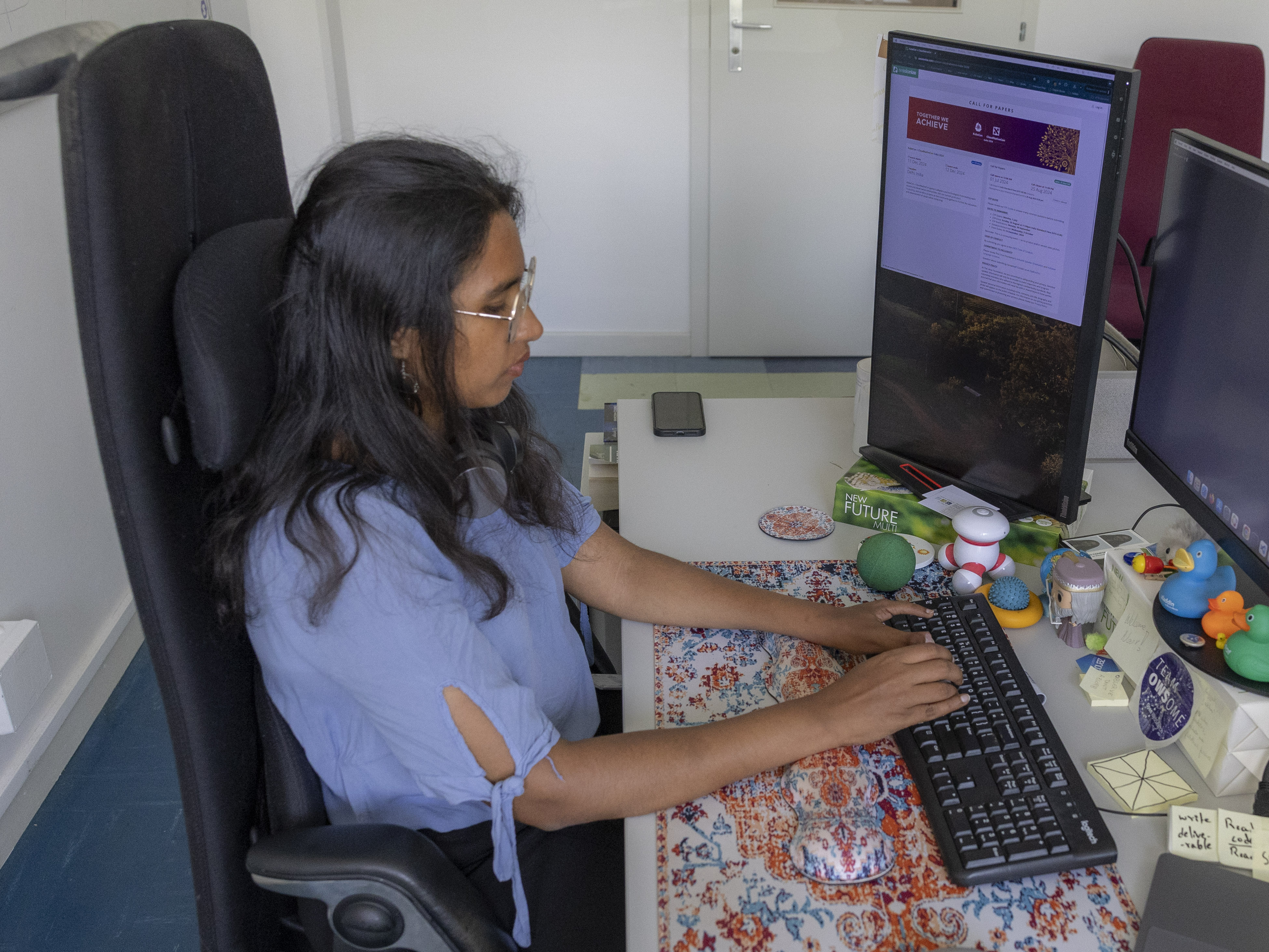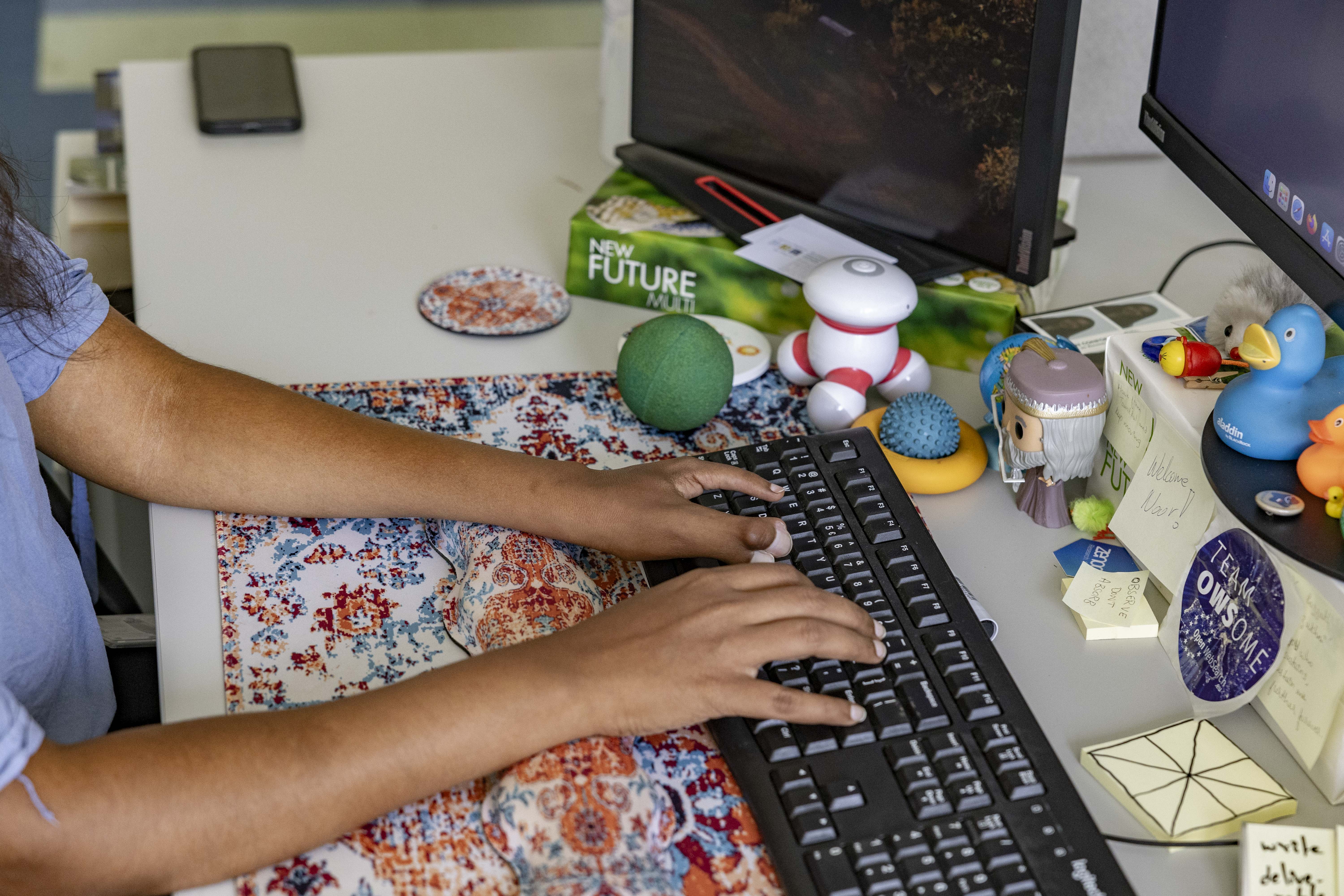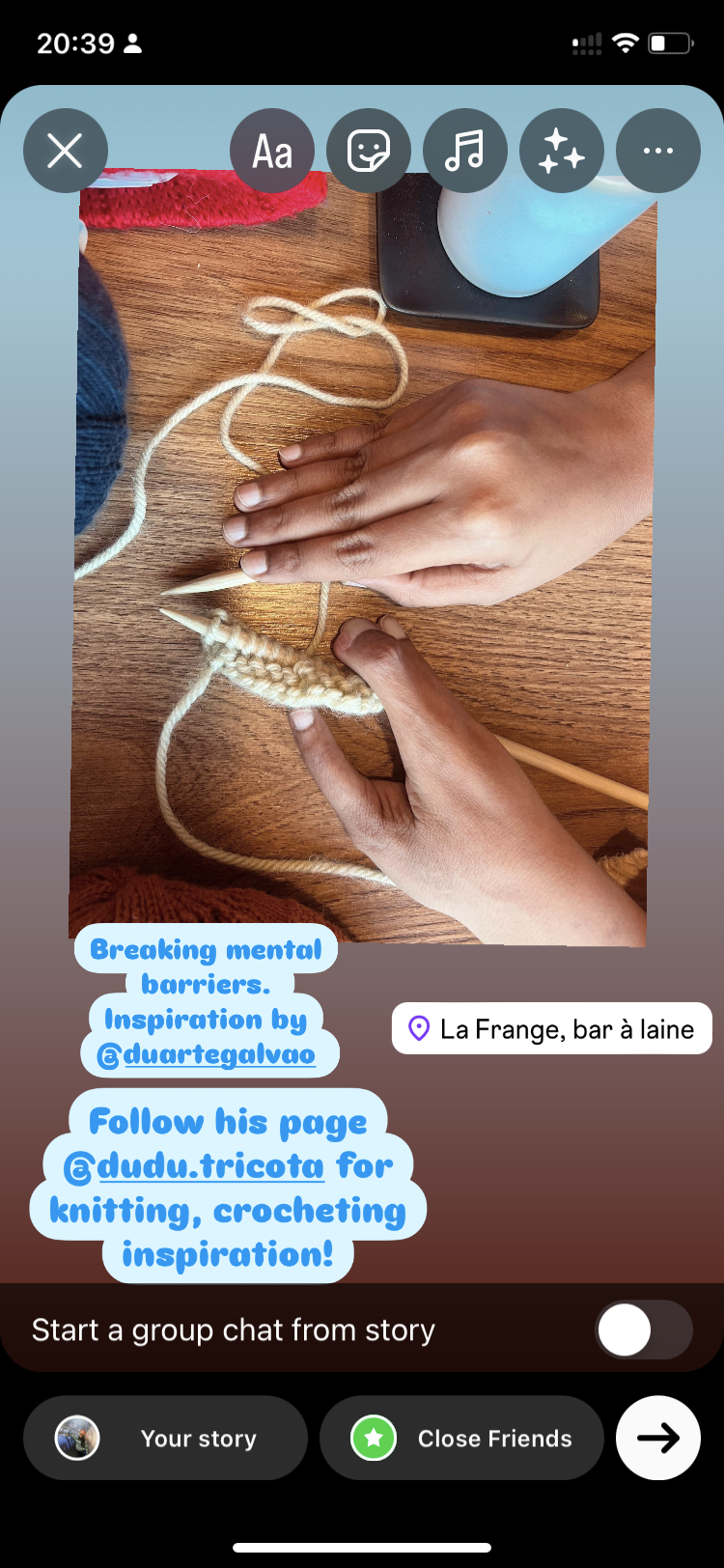Nooon: Search Engine for Disability related knowledge

Posted on 22/05/2025 by admin
Nooon is a research-driven search engine dedicated to people with disabilities who require search engines that surface structured, accessible and representative information while ensuring privacy in both access and contribution.
Empowering Data Sovereignty through OpenWebSearch.EU, Reclaiming the Web for Disability Knowledge: A Use Case for OpenWebSearch
I introduce a vertical search engine prototype—being developed as part of WP4 and WP6 in OpenWebSearch.eu project—that demonstrates a concrete application of the OpenWebSearch infrastructure. This prototype, named “Nooon”, is a research-driven search engine dedicated to disability-related data. The conceptual foundation of Nooon was recently accepted to the Cambridge Forum on AI: Culture and Society – Themed Issue: Empirical AI Ethics The accepted abstract can be found here in CERN CDS. Nooon addresses a vital gap: persons with disabilities require search engines that surface structured, accessible, and representative information while ensuring privacy in both access and contribution. Today’s dominant search ecosystems not only overlook these requirements but also amplify exclusion by treating accessibility as an afterthought. When I pitched this idea during our WP4 and WP6 meetings, Andreas—my supervisor—introduced me to his earlier work on the BOINC-based LHC@Home project at CERN. That project used a distributed volunteer computing model where participants donated spare computing cycles to simulate particle collisions (CHEP04-488, CERN CDS). Although its scientific context was different, the idea resonated deeply: sustainable computation by design, achieved through public participation. This ethos now informs Nooon’s infrastructure. We are exploring the integration of lightweight, user-donated compute and annotation frameworks—where users may include persons with disabilities, caregivers, clinicians, and advocacy communities. These contributors shape and annotate the knowledge ecosystem without requiring high-performance GPUs or energy-intensive clusters. Nooon shows that inclusion need not come at the cost of sustainability. On the contrary, it sets a precedent for responsible, low-energy AI systems that empower rather than extract hence reducing impact on climate change. In the full paper currently in development, we are prototyping Nooon alongside OpenWebSearch’s dedicated “disability” index slices. Through this integration, Nooon emerges not only as a research artifact, but as a functioning prototype of ethically aligned search—a tool that reclaims the web as a shared, inclusive commons designed to serve all users, especially those historically left out of mainstream digital infrastructures.



